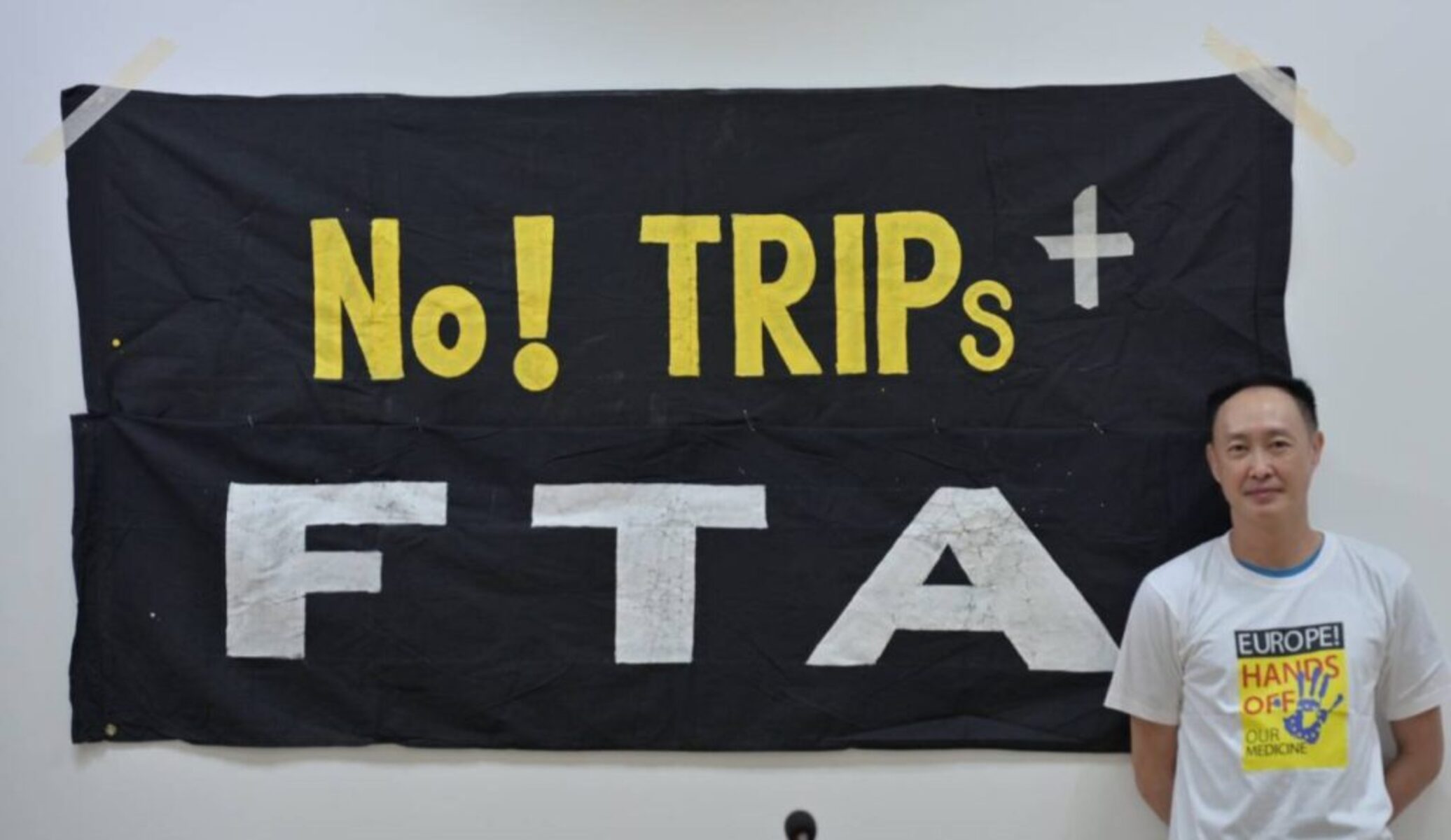Thailand signed FTA with EFTA: no worries about TRIPs Plus, except Border Measure & IP Enforcement
Access to Medicines - 16 February 2025
Thailand signed FTA with EFTA: no worries about TRIPs Plus, except Border Measure & IP Enforcement
The Thai civil society groups working on access to medicines commended the Thai negotiating delegation and the Ministry of Public Health for respecting the civil society’s comments and standing firm in protecting the interests of Thai people in accessing medicines, leading to negotiations reaching a conclusion without binding issues concerning access to medicines and the universal health insurance system, except for border measures and the enforcement of intellectual property.
Yupa Sukroen, the chairperson of Thai Network of People Living with HIV/AIDS (TNP+) said, “As a representative of people living with HIV in Thailand, I am somewhat relieved that the FTA negotiations between Thailand and EFTA have concluded with only TRIPS-Plus measures on border measures and IP enforcement, which could be a major obstacle to medicines being expensive and inaccessible to the public. Today, more than 400,000 people living with HIV in the country have access to antiretroviral drugs (ARVs) under the national health security schemes. People living with HIV do not die from opportunistic infections, and we can campaign for reducing stigma and discrimination and eliminate concerns about transmission because we do not have barriers to patents for antiretroviral drugs, and we can have affordable generic drugs for HIV prevention and treatment. All three health insurance schemes can provide ARVs to people living with HIV. Therefore, FTAs are an important issue that we are keeping a close eye on in order to oppose, especially those that will affect people’s access to medicines.”
Chalermsak Kittitrakul, the Manager of the Access to Medicines Project, said, “We were informed by the Department of International Trade Negotiations at the meeting on 23 November 2024 that the negotiation had concluded and would be signed at the World Economic Forum in January 2025. We asked the Thai negotiating representative in charge of intellectual property, and the representative confirmed that there were no concerns about intellectual property and access to medicines in the concluded text. However, the content of the negotiations could not be disclosed until after the signing.”
“We found that after the signing in Davos, EFTA posted the signed negotiation text on the EFTA website. When we looked at the content, we found that 1) there were no obligations on intellectual property more stringent than the TRIPS Agreement that would affect access to medicines, such as data exclusivity, patent terms extension, extension of the patentability scope, and patent linkage, 2) there were no worrisome conditions on the government procurement and the investment protection that would allow foreign investors to sue the state in cases of public interest policies, and 3) Thailand is not required to join the UPOV 1991.”
“However, we have two concerns in the FTA that Thailand signed with EFTA: 1) Border measures and IP enforcement, and 2) EFTA reserves the right to review the FTA that has been signed and bring the measures back for discussion or renegotiation.”
“From the Annex to the chapter on intellectual property rights, there are concerns about border measures and IP enforcement, which open a chance to have criminal penalties for all types of intellectual property infringement in the case of import and export, including medicines and patented products. The WTO TRIPS Agreement does not require criminal offenses for patent infringement.”
“In addition, it limits the court’s power to have decision on seizing goods suspected of infringing intellectual property rights until the case is finalized, while the court may not be able to exercise its discretion to release seized drugs to be sold or used in the healthcare system to save patients’ lives. From the perspective of access to medicines, this measure may be an obstacle to access to medicine, as happened when African countries ordered and imported essential medicines from India and were seized at ports in Germany and the Netherlands, even though those medicines did not infringe intellectual property rights in the countries of origin or destination, but were seized in Europe because they were suspected of infringing trademarks and patents in Europe.”
“This kind of measure could be used to block or eliminate competitors and create chilling effect to the generic drug industry because if they lose the case, they will also face criminal penalties, in addition to fines. However, the patients will be most affected.”
“We need to discuss this issue with the responsible government agencies to seek clarification to prevent this measure from being abused to defame the generic drug industry and hinder access to essential medicines at affordable prices.”.
TNP+’s Chairperson added that “Even though TRIPS-plus in the FTA with EFTA only covers border measures and IP enforcement, we cannot assure ourselves because Thailand is negotiating another FTA with the EU (European Union). The EU is demanding very strict TRIPS-plus provisions and is pressuring Thailand to open up the government procurement market. The EU has 27 member countries, while EFTA has 4 members. The EU’s economies of scale is much larger than EFTA’s, which should create a lot of pressure in the negotiation and cause concerns because if Thailand agrees to sign the FTA with the EU as the EU demands, EFTA will also benefit from the conditions that Thailand signed the FTA with the EU.”
Thailand announced the conclusion of the FTA negotiations with the EFTA countries on 29 November 2024 and signed at the World Economic Forum in Davos, Switzerland on 23 January 2025. After this FTA is signed, both parties will have to submit the signed agreement for parliamentary approval again.
Translated from the webpage of Thai Network of People Living with HIV/AIDS (TNP+):






